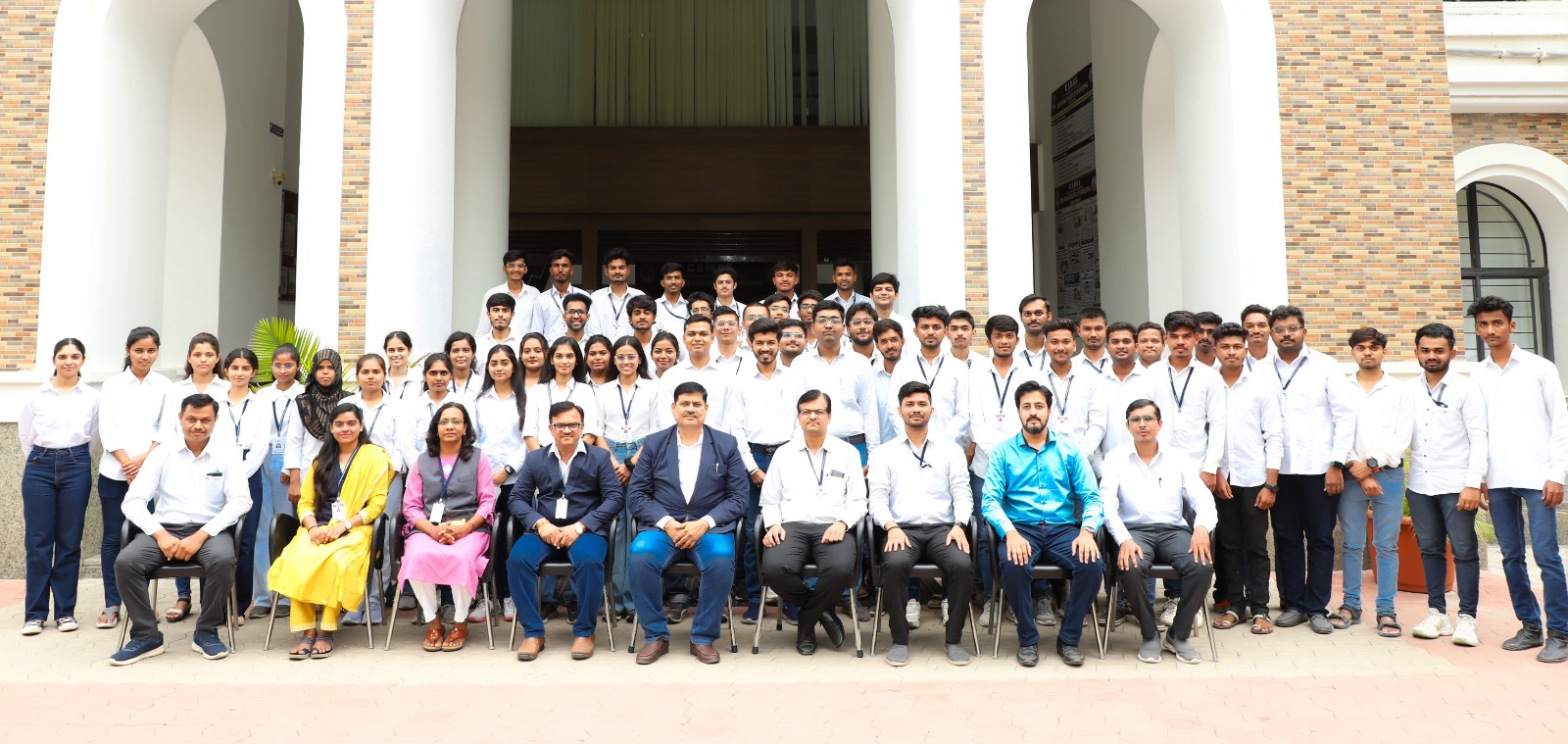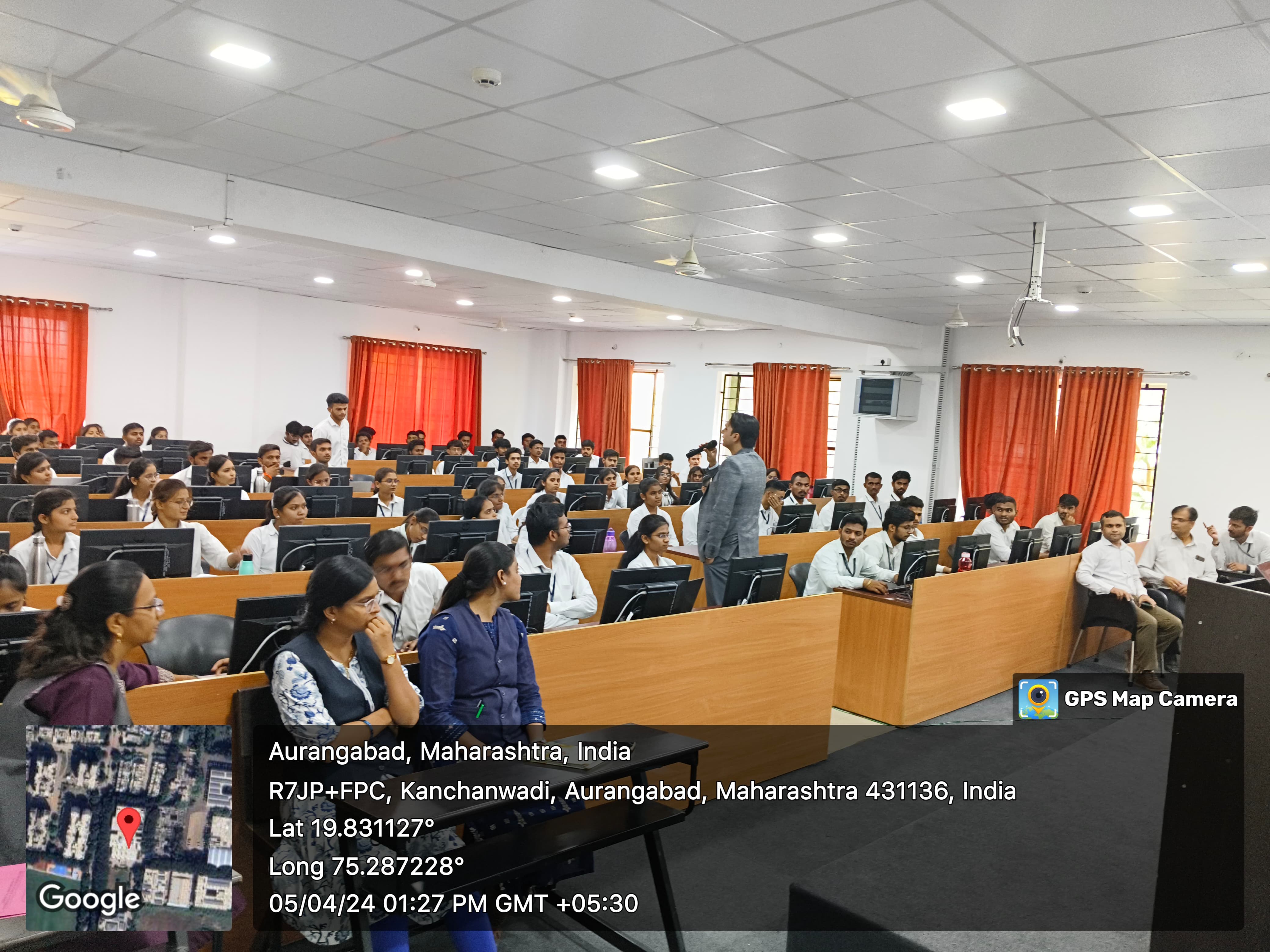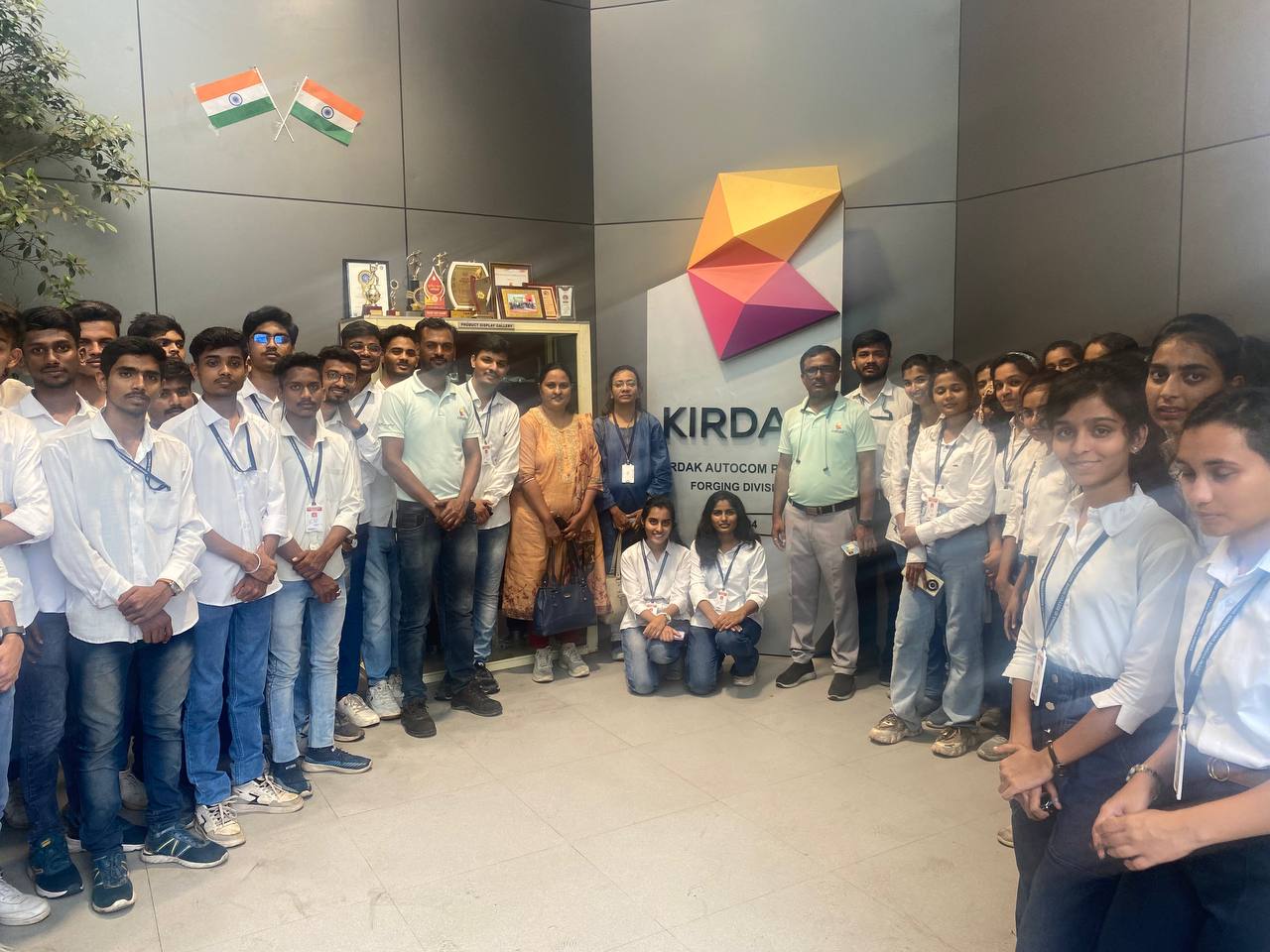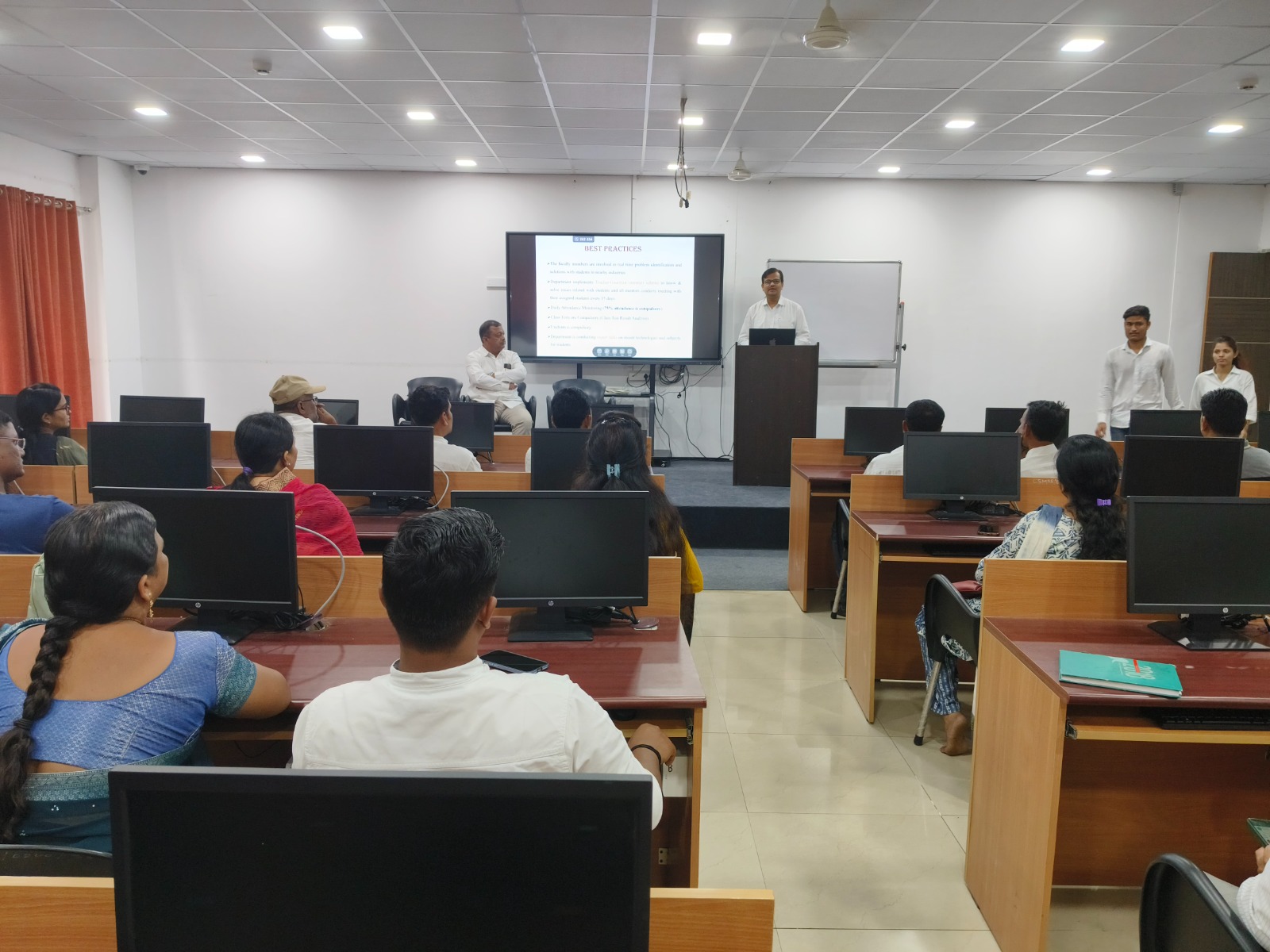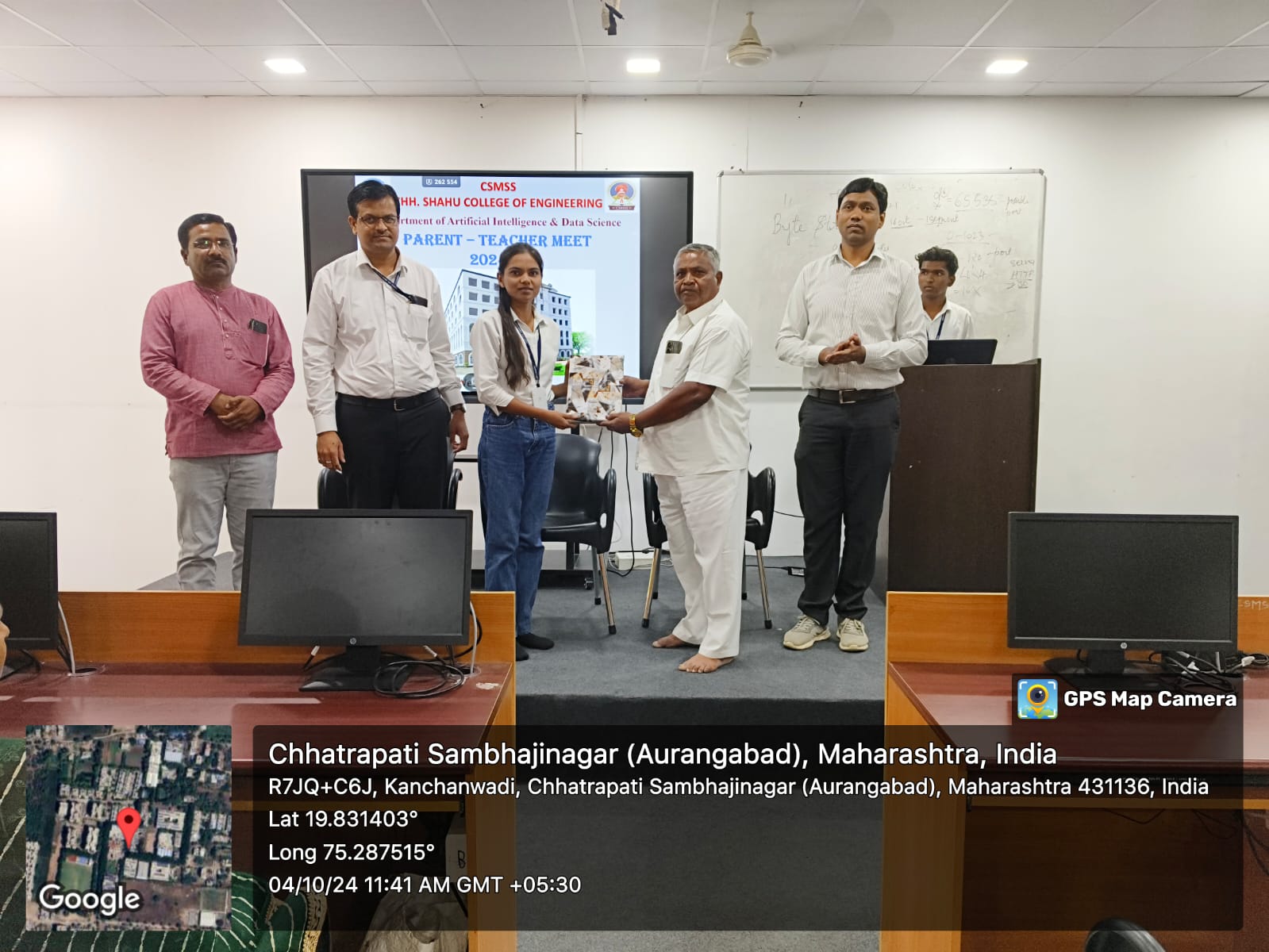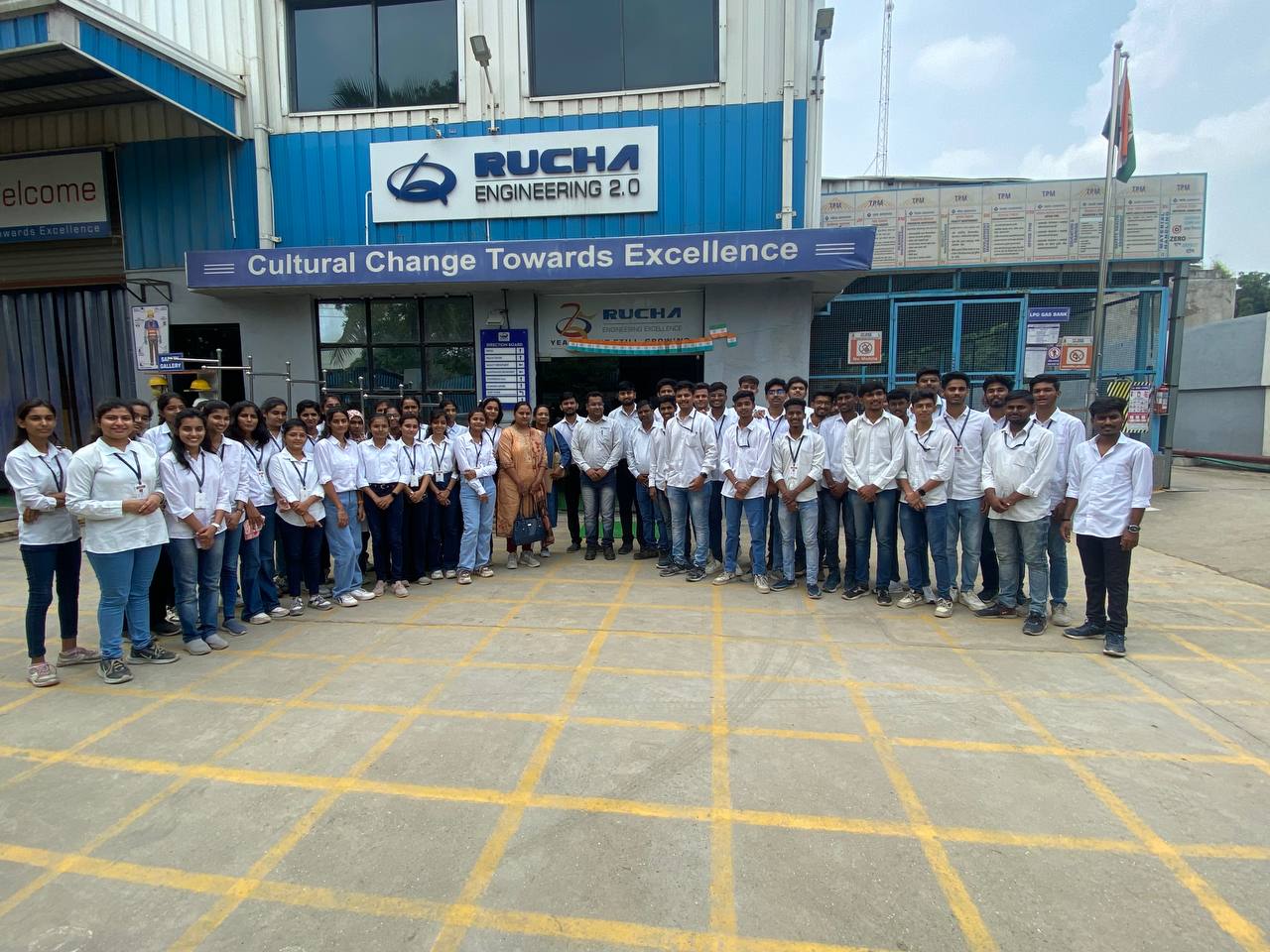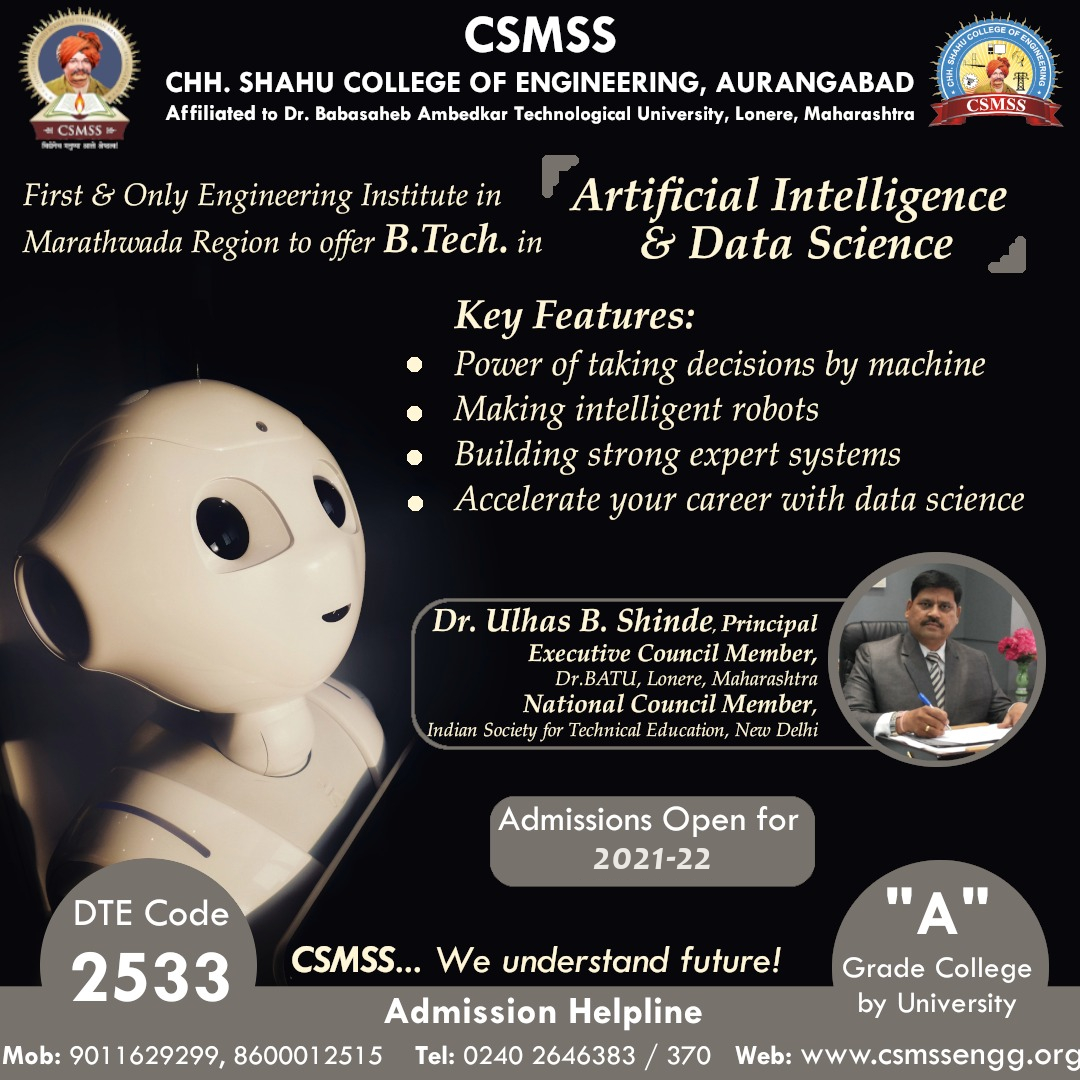| Dr. S. R. Zanwar | Professor & Head | hod_aids@csmssengg.org |
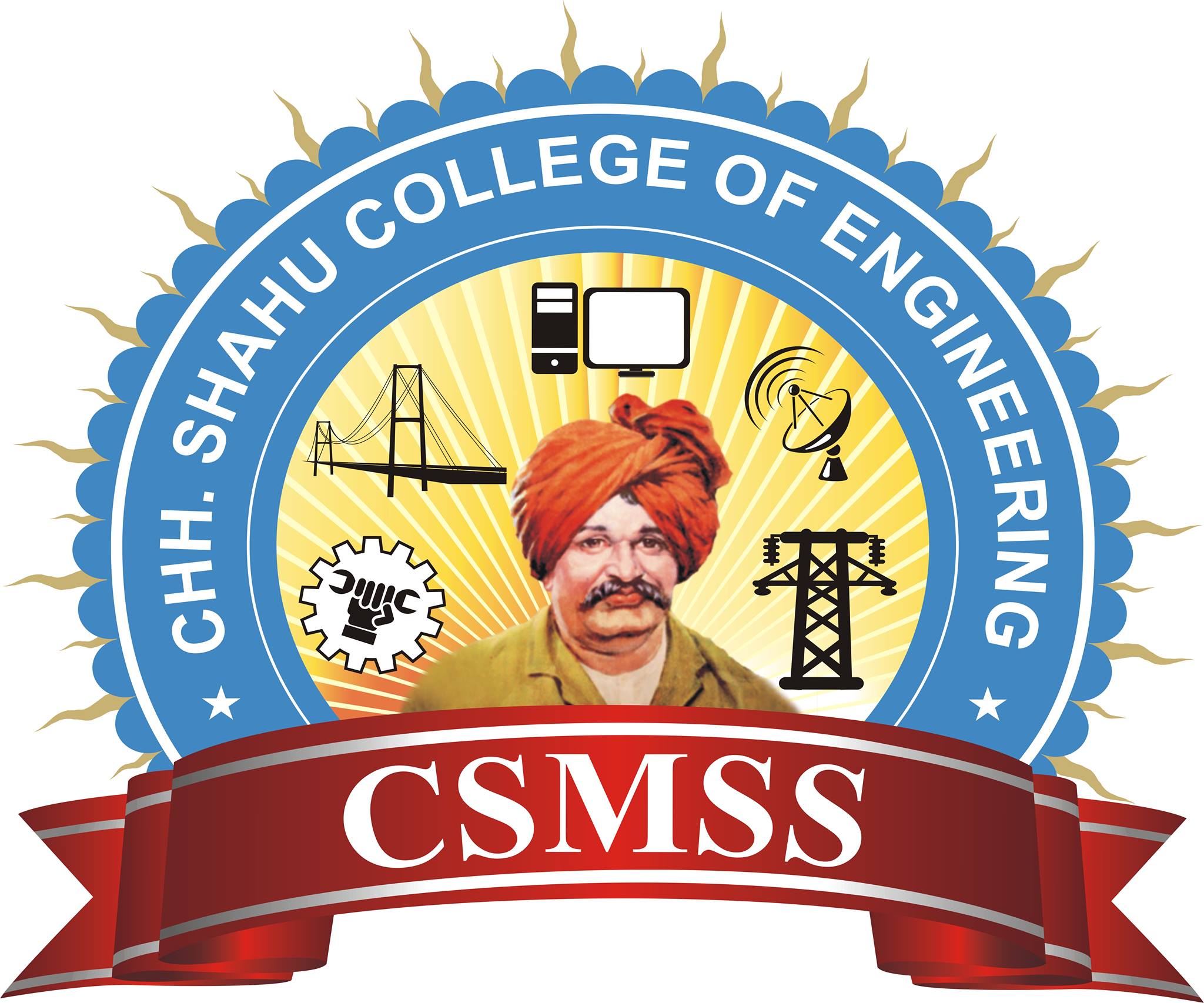
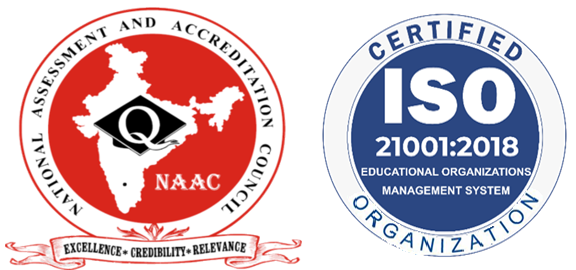
CSMSS
CHH. SHAHU COLLEGE OF ENGINEERING
Approved by AICTE-New Delhi, DTE-Govt. of Maharashtra,
Affiliated to Dr. Babasaheb Ambedkar Technological University, Lonere.
DEPARTMENT OF ARTIFICIAL INTELLIGENCE & DATA SCIENCE
Vision of Department
To establish a unique standard of quality education by utilizing revolutionary technology, fostering collaborative culture and develop technocrats to solve the problems of society by using innovative tools in artificial intelligence and data science.
Mission of Department
- M1: To provide high quality, value based education and to contribute to the advancement in the field Artificial Intelligence and Data Science in order to increase the level of satisfaction among all stakeholders.
- M2: To mentor students in Artificial Intelligence and data science research with the goal of making an ethical impact on society by addressing societal challenges.
Graduates will be able to :
- PEO1: To equip graduates with a strong foundation in engineering sciences and Artificial Intelligence and Data Science Engineering fundamentals to become effective collaborators, researchers and real-time problem solver with technical competencies.
- PEO2: Perceive the limitation and impact of engineering solutions in social, legal, environmental, economic and multidisciplinary contexts.
- PEO3: Excel in Industry/technical profession, higher studies, and entrepreneurship exhibiting global competitiveness.
Click Here for Program Outcomes (PO’S)
Program Specific Outcomes (PSO’s)
Graduates will be able to :
- PSO1: Apply the fundamentals of science, mathematics and engineering knowledge to design, development, formulates and investigate complex engineering problems related to application area in Artificial Intelligence and Data Science.
- PSO2: Provide exposure to latest tools and technologies and aware of the impact of professional engineering solution in environmental, societal, professional ethics and able to communicate effectively.
- PSO3: To publish research paper and think, innovates in artificial intelligence, machine Learning and Data Science domain.
The world is moving over the cutting edge technology. That made fast and rapid development in the industry with use of technology Artificial Intelligence and Data Science (AI & DS). Artificial Intelligence (AI) is wide- ranging branch of computer science for building smart machines which is capable to think, perform the task and take the decision’s intelligently like human being. AI multidisciplinary approach is creating advancement in every sector of tech industry with the use of Machine Learning (ML), Deep Learning (DL) and Natural Language Processing. Data Science is booming exponentially in almost all parts of the world. Data Scientist’s have an ability to find insights from data for the companies and organizations.
Our aim is to make graduates ready with a strong foundation in Engineering Sciences, Artificial Intelligence, Data Science and Software Engineering to become effective collaborators, researchers, entrepreneur and real-time problem solvers with technical competencies, human value and ethics.
Highlights
- Courses and Curriculum: Offers foundational and advanced courses with hands-on labs and industry tools.
- Research and Development: Engages in cutting-edge research in AI, ethics, predictive modeling, and more.
- Faculty and Staff: Experienced faculty with expertise in various AI & DS fields.
- State-of-the-Art Labs and Facilities: Equipped with specialized labs and high-performance computing resources.
- Student Opportunities and Achievements: Provides internships, hackathons, and showcases student achievements.
- Career and Placement Support: Offers career services, placement support, and alumni success stories.
- Collaborations and Partnerships: Partnerships with tech companies, startups, and research organizations.
- Outreach and Community Engagement: Hosts workshops, lectures, and initiatives for AI ethics and social good.
HoD Message

The Department of Artificial Intelligence & Data Science at CSMSS CSCOE is dedicated to providing high-quality technical education at the undergraduate as well as post graduate level. Our curriculum covers a broad range of modern topics, including Artificial Intelligence (AI), Data Analytics, Machine Learning, Deep Learning, Computer Vision, Natural Language Processing (NLP), Data Engineering, Big Data, and Generative AI. With access to advanced labs, high-performance systems, and smart classrooms, students benefit from hands-on learning experiences.
This includes practical training, project-based learning, research projects, and internships, which help build the skills needed to work effectively in interdisciplinary teams.
Our graduates are well-prepared for diverse career paths, whether in industry, research, or entrepreneurship. The education we provide ensures that students are not only ready to keep up with the rapid changes in technology but also have the ability to shape its future.
Join us as we train the next generation of innovators and leaders in AI and data science!
| B.Tech Artificial Intelligence & Data Science |
| M.Tech Artificial Intelligence & Data Science |
Career path you can choose after the program
- Artificial Intelligence Engineer
- Data Scientist
- Data Analyst
- Machine Learning Engineer
- Deep Learning Engineer
- Computer Vision Engineer
- Big Data Engineer
- Business Intelligence Developer
- Software Engineer
The department is ready with recent high-end infrastructure and tools & technology. Labs equipped with high configuration of CPU, GPU and Jetson TX2 Series Nvidia Hardware platform. The Internet facility (with 20 Mbps leased line) is made available to the students and faculty members.
The department has following laboratories.
Laboratory Name
- Artificial Intelligence Laboratory
- Data Science Laboratory
- IOT & Robotics Laboratory
- Programming / Project Laboratory
- Web Technology Laboratory
- Database Laboratory
University Syllabus
| Prof. Y. R. Tayade | Associate Professor | yrtayade@csmssengg.org |
| Prof. J. U. Badak | Assistant Professor | jubadak@csmssengg.org |
| Prof. S. N. Panchbhai | Assistant Professor | snpanchbhai@csmssengg.org |
| Prof. M. D. Nawale | Assistant Professor | mdnawale@csmssengg.org |
| Prof. V. S. Damdhar | Assistant Professor | vsdamdhar@csmssengg.org |
| Prof. K. A. Kadam | Assistant Professor | kakadam@csmssengg.org |
| Prof. N. M. Sapate | Assistant Professor | nikhil_sapate@csmssengg.org |
| Prof. C. V. Bhusare | Assistant Professor | cvbhusare@csmssengg.org |
| Prof. S. V. Moin | Adjunct Assistant Professor | svmoin@csmssengg.org |
| Prof. K. S. Jadhav | Assistant Professor | @csmssengg.org |
| Prof. D. P. Gadhe | Assistant Professor | @csmssengg.org |
| Prof. M. V. Shisode | Assistant Professor | @csmssengg.org |
Faculty / Staff List (Post Graduate - Artificial Intelligence & Data Science)
| Dr. A. S. Gavali | Professor | ashwini.gavli@csmssengg.org |
| Prof. M. A. Khan | Assistant Professor | mkhan@csmssengg.org |
Teacher Assistant (Artificial Intelligence & Data Science)
| Mrs. P. A. Garad | Teacher Assistant | @csmssengg.org |
| Mr. T. P. Kushwah | Teacher Assistant | @csmssengg.org |
| Ms. S. B. Gardas | Teacher Assistant | @csmssengg.org |
Our Institute
Courses
Contact Us
- Chh.Shahu College of Engineering,
- Kanchanwadi, Paithan Road,
- Chhatrapati Sambhajinagar (Aurangabad), MS, India.
- Tel.: (0240) 2646363 , 2646373,
- 9921127099 ,
- 9011629299
